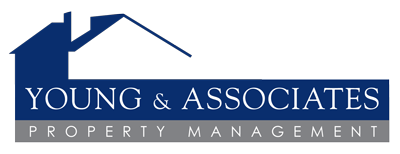Like many other industries during this hectic year, the real estate and property management industry has been hit hard. It has shifted dramatically, due to the coronavirus pandemic. It has put extreme pressure on professionals in this field to deal with the effects of the crisis, support their clients, and plan for an overall new normal. This is in both the residential and commercial sectors.
Supply and Demand
The supply and demand for property have been completely altered this year, with the effects of the pandemic. Even before COVID-19, supply for property was already at an all-time low with a lack of new construction and high cost of materials, whereas demand was very high, especially with the Millennial generation. Soon enough, once COVID-19 hit, supply decreased even more, with supply chains having major delays.
From the beginning of the pandemic, many feared that supply chains, and therefore construction and other projects, would be delayed…and they were right. Materials, equipment parts, landscaping, and other supplies are either in a shortage and/or simply cannot be delivered due to closed delivery companies and a diminished labor force. And as we know, when supply goes down, prices go up, causing money to be a little tight for companies.
Looking at the market now, both supply and demand are beginning to inch up together, but trends are not looking to change, even after the crisis ends. Looking at the new supply and demand, real estate and property management have to change some policies and procedures to stay running.
New Procedures
For many property management clients, a variety of measures were put in place to ensure their safety and health amid the coronavirus pandemic. This includes social distancing rules and revised renewal policies. Regarding disinfecting and social distancing, guidelines were put in place. This includes limiting interactions, keeping a safe distance, disinfecting surfaces, and increasing the frequency of how often properties are cleaned. Overall, 64% of property managers have enacted social distancing measures, 50% are increasing their cleaning regimens, and 58% are disinfecting contact surfaces more often. Even some amenities, like the spa, gym, and pools, have even been shut down or limited in properties, due to the risk of causing infections. Protocols for these amenities require surfaces to be cleaned for every so often it has been used, specific ventilation to clear the air, and proper signage to ensure safe and healthy use. Some properties simply do not have the time or money to manage all this extra work at this time.
Regarding more business processes, some policies have been changed following the pandemic, like renewal policies to help keep tenants in their homes. 32% of managers say they are handling all renewals remotely, and 16% plan on holding off on rent increases. Some property managers are also planning on relaxing their delinquency and eviction policies, following new mandates set by state and local governments. This is in response to COVID-19 and the unemployment rate rising. Even the property showing process has also been changed to better cope with the pandemic.
Self-guided tours and virtual tours have become very convenient, especially in the time of social distancing. While virtual tours are completely online, using a computer or phone, self-guided tours are completed in person. Both are unattended by the realtor or leasing agent. Self-guided tour properties have smart door locks that can be controlled from a device, hence the real estate agent does not need to be at the property with the guests to let them in. This leads to the next topic, technology.
Technology
Another huge shift this year, because of COVID-19, is the almost-complete stop to social interactions outside the household, and social-distancing. Working from home, ordering take-out or delivery food, and virtually learning quickly became the new normal in late March, early April as the virus began spreading drastically. Luckily, communication technology and the Internet has become one of the few booming businesses at this time. It is helping people interact and resume work without being physically face to face. Similarly, many of our duties have transitioned online, like meetings with clients over Zoom, tenant/owner payments, applications, renewals, some even before COVID-19. Of course, any mandatory face-to-face interactions come with social distancing and a mask. In the end, while it may have caused a little chaos to finally embrace new technologies in this industry, it did help to make that push and accelerate the process.
The Future
As far as the future of real estate and property management, there is an opportunity for this industry to take this time to restructure and change, per future generations. Partnerships, for example, can be a vital strategy to help both businesses innovate and plan for success. As well as new technology and processes being used, many will continue being used, even far after the pandemic. Itt makes it easier for the professionals and clients in this business.
While there is still much uncertainty amidst the pandemic, it is for sure that companies need to understand consumer behavior. They need to be confident in how to communicate with each other and their clients. Although it may seem like the market will never be able to recover, slow steady growth will be sure to come. The Real Estate Brokage and Property Management industry will be a “new normal”, or should we say, a new “new better”.
Click here to check out more of our blog posts.






